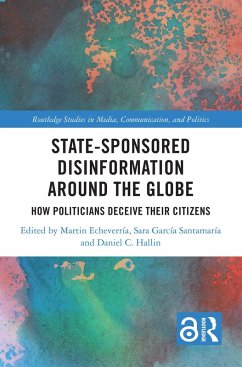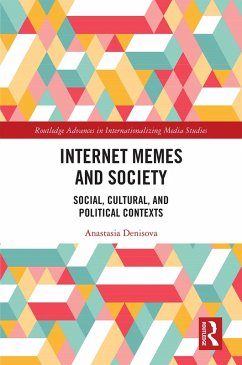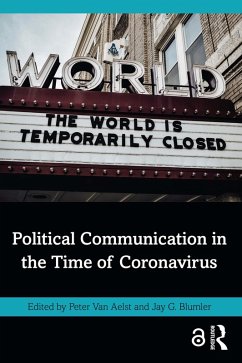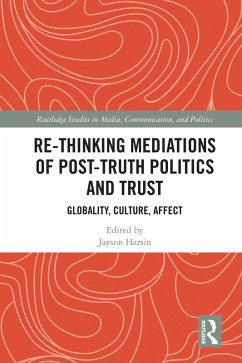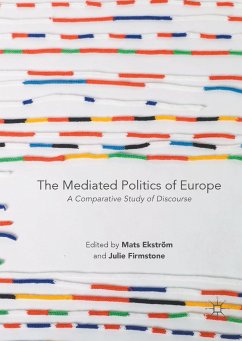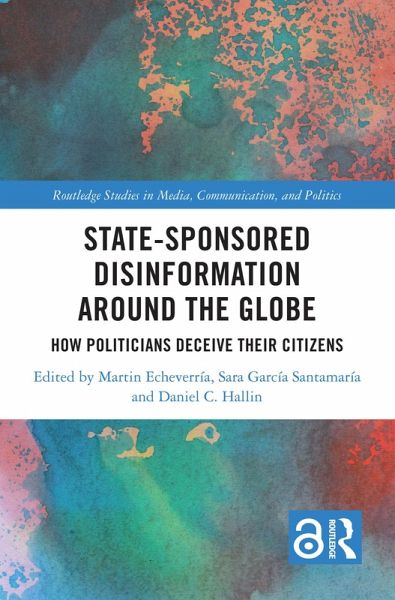
State-Sponsored Disinformation Around the Globe (eBook, PDF)
How Politicians Deceive their Citizens
Redaktion: Echeverría, Martin; Hallin, Daniel C.; García Santamaría, Sara
Versandkostenfrei!
Sofort per Download lieferbar
39,95 €
inkl. MwSt.
Weitere Ausgaben:

PAYBACK Punkte
20 °P sammeln!
This book explores the pervasive and globalised trajectory of domestic disinformation. It describes specific operations and general apparatuses of disinformation that are sponsored by the State institutions in several countries around the world, such as governments, political parties, and politicians.With an international team of expert authors, this volume meticulously scrutinises instances of State-sponsored disinformation across a diverse spectrum of 14 countries encompassing Western and Eastern Europe, North and Latin America, Africa, Asia, and the Middle East. It examines how political la...
This book explores the pervasive and globalised trajectory of domestic disinformation. It describes specific operations and general apparatuses of disinformation that are sponsored by the State institutions in several countries around the world, such as governments, political parties, and politicians.
With an international team of expert authors, this volume meticulously scrutinises instances of State-sponsored disinformation across a diverse spectrum of 14 countries encompassing Western and Eastern Europe, North and Latin America, Africa, Asia, and the Middle East. It examines how political landscapes amplify or constrain disinformation, advancing a comprehensive understanding of its dynamics in the contemporary global milieu. The book is organised in three sections that gather case studies from democratic, non-democratic, and transitional regimes.
Advancing the field of misinformation and disinformation studies by specialising in State-sponsored operations and their consequences, this book will be an essential volume for scholars and upper-level students of media and communication studies, journalism, political communication, disinformation and misinformation, social media, sociology, and international politics.
The Open Access version of this book, available at http://www.taylorfrancis.com, has been made available under a Creative Commons [Attribution-Non Commercial-No Derivatives (CC-BY-NC-ND)] 4.0 license
With an international team of expert authors, this volume meticulously scrutinises instances of State-sponsored disinformation across a diverse spectrum of 14 countries encompassing Western and Eastern Europe, North and Latin America, Africa, Asia, and the Middle East. It examines how political landscapes amplify or constrain disinformation, advancing a comprehensive understanding of its dynamics in the contemporary global milieu. The book is organised in three sections that gather case studies from democratic, non-democratic, and transitional regimes.
Advancing the field of misinformation and disinformation studies by specialising in State-sponsored operations and their consequences, this book will be an essential volume for scholars and upper-level students of media and communication studies, journalism, political communication, disinformation and misinformation, social media, sociology, and international politics.
The Open Access version of this book, available at http://www.taylorfrancis.com, has been made available under a Creative Commons [Attribution-Non Commercial-No Derivatives (CC-BY-NC-ND)] 4.0 license
Dieser Download kann aus rechtlichen Gründen nur mit Rechnungsadresse in A, B, BG, CY, CZ, D, DK, EW, E, FIN, F, GR, HR, H, IRL, I, LT, L, LR, M, NL, PL, P, R, S, SLO, SK ausgeliefert werden.




